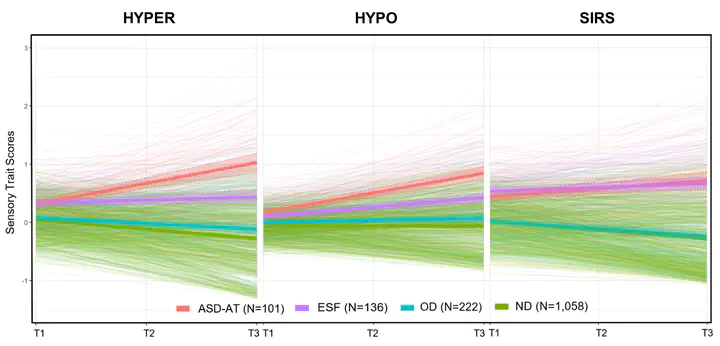Developmental trajectories of sensory patterns from infancy to school age in a community sample and associations with autistic traits

Abstract
This prospective study examined the latent growth trajectories of sensory patterns among a North Carolina birth cohort (N = 1517; 49% boys, 87% White) across infancy (6–19 months), preschool (3–4 years), and school years (6–7 years). Change rates of sensory hyper- and hyporesponsiveness better differentiated children with an autism diagnosis or elevated autistic traits from those with other developmental conditions, including non-autistic children with sensory differences. More sensory hyper- and hyporesponsiveness at infancy followed by steeper increases differentially predicted more autistic traits at school age. Further, children of parents with higher education tended to show stable or improving trajectories. These findings highlight the importance of tracking sensory patterns from infancy for facilitating early identification of associated challenges and tailored support for families.